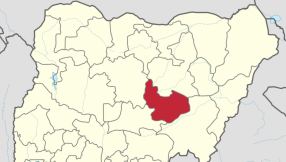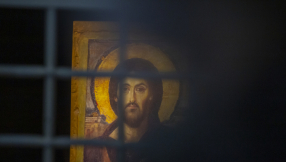Peru Quake Clean Up Commences; Aid Efforts Pick Up Pace
|PIC1|After the search for survivors officially ended Monday, efforts were shifted to clearing the tons of rubble from the streets, providing aid to survivors, and preparing for reconstruction.
Eighty percent of the southern port city, which had a pre-quake population of 130,000, was destroyed by last Wednesday's powerful 8.0 magnitude earthquake.
According to Agence France-Presse, the quake killed at least 540, injured 1,100 and left 200,000 homeless in Peru's southwestern coastal area.
"It is notable ... that 85% of the city of Pisco is in ruins. There are still problems with water, electricity, etc., although this is improving slowly with the delivery of water in containers, since the city water system has collapsed and the water supply is polluted with sewage," reported Maj. Luis Gonzales Posada, a Salvation Army divisional commander, in an update from The Salvation Army.
"We have 40 volunteers who are working shifts every day, 20 hours per day. Our volunteers are providing spiritual support, consoling the families who have lost loved ones, and helping to move the bodies. This is having a tremendous impact on their own lives. Whole families have disappeared," he stated.
According to AFP, the government said a census would be taken in a week of all homeless people in the area to include them in a work force for the reconstruction effort, which engineers said could take up to four years.
Life was hard enough for most people in this desert region of farmers and fishermen, as The Associated Press noted in its report. Now factories damaged by the quake offer no work, dozens of fishermen lost their boats, and farmers fear their animals will die and crops wilt away with water distribution ruptured.
President Alan Garcia said in Lima on Monday that cleaning the streets and rebuilding in a region where the quake rendered 80,000 homeless are now top priorities. The government will then build small two-story houses for those who lost their homes.
Though he estimated all rubble would be cleared in 15 days so families could start rebuilding, AFP reported that the massive cleanup effort did not get underway in Pisco until Thursday.
Meanwhile citizens have been complaining over the authorities' poorly organised distribution of aid. Although aid from neighboring South American nations arrived in Peru during the weekend, as well as help from Europe and the United States, food, water and clothing were only trickling in. Tents and blankets, meanwhile, remained in short supply.
The Salvation Army, however, reported seeing evidence of much better coordination and networking after meetings with the authorities and other international organisations on Sunday.
"We are now serving 3,000 people per day. 4,000 blankets have been distributed, 600 mattresses, 2,000 tons of water, 400 plastic buckets, and 29,867 rations of food have been served," Posada reported. "The government has asked us if we can increase our response activities still further, so we are opening three more distribution centers, which will serve up to 6,000 victims."
In addition, World Vision, one of the largest Christian relief and development organizations in the world, said it provided aid to approximately 2,900 families in Pisco, Chincha and Ica as of Tuesday and had distributed 27,000 thousand liters of water for 1,500 families during the weekend in four urban settlements in the outskirts of Ica.
"The people of 'La Expansion' said that it was the first time they were getting water since the earthquake," commented Mauro Solorzano, a World Vision aid worker deployed from Ayacucho, according to a report. "Our support was a great relief for them. Each family got approximately 15 liters of water."
Local Christian groups are also making efforts to provide relief for quake victims.
The tiny Anglican Diocese of Peru has been feeding up to 6,000 people a day since the massive earthquake hit the region last week.
Working alongside government and aid agencies, the diocese has set up soup kitchens and community help centers, as well as distributing vital supplies, such as medicine and blankets, according to the Anglican Communion News Service.
"The diocese is deeply involved in earthquake relief and rescue work," said the Rt. Rev. Bill Godfrey, the Anglican bishop of Peru, in the report. "At present we have a small team in the area of the epicenter. They are primarily involved in feeding people and providing water and medicine. On Saturday, Aug. 18, they fed over 6,000 people in an area just outside Pisco. They were the first help to arrive."
Godfrey also reported of the difficulties getting to the area due to the poor roads and civil disorder. So far, however, they have had the help of army convoys to reach the stricken areas.
"We have volunteers working in the hospitals, visiting and caring for those who have been injured," the bishop further noted in his report. "We are caring for their families too with food, clothing, medicines, friendship and lodging.
"We are working in conjunction with other churches and aid agencies, adding whatever we can to what God gives us," he concluded.
According to reports, last Wednesday's quake was one of the worst disasters in Peru in the last century. In 1970, an earthquake killed 50,000 people in avalanches that buried the town of Yungay.













